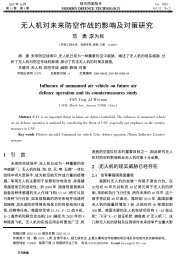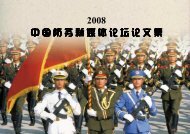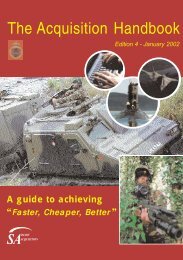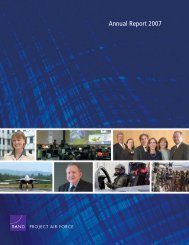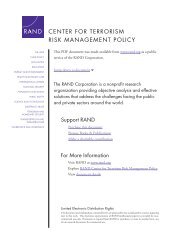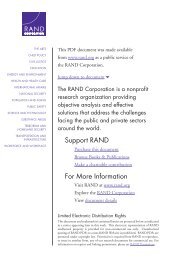How Terrorist Groups End - RAND Corporation
How Terrorist Groups End - RAND Corporation
How Terrorist Groups End - RAND Corporation
Create successful ePaper yourself
Turn your PDF publications into a flip-book with our unique Google optimized e-Paper software.
134 <strong>How</strong> <strong>Terrorist</strong> <strong>Groups</strong> <strong>End</strong>: Lessons for Countering al Qa’ida<br />
mosity and arguments that underpin it, and indeed the regions of the<br />
world from which its struggle emanated.<br />
Local groups are more likely to be effective in influencing locals<br />
and countering terrorist ideology than is the U.S. military or other<br />
international actors. It is critical to understand who holds power, whom<br />
the local population trusts, and where locals get their information—<br />
and then to target these forums. In some cases, such as in Afghanistan<br />
and Pakistan’s tribal areas, religious leaders and tribal elders wield<br />
most of the power. This means providing assistance to credible indigenous<br />
groups, such as Muslim clerics or tribal elders, that can effectively<br />
counter jihadist propaganda. These groups do not necessarily have to<br />
be supportive of the United States, but they do need to oppose insurgents<br />
and have credible influence among the population. Much of this<br />
funding may have to be indirect and covert to protect their credibility.<br />
Assistance could be directed to indigenous media, political parties, student<br />
and youth organizations, labor unions, and religious figures and<br />
organizations that meet at least two criteria: (1) They have a notable<br />
support base in the local population, and (2) they oppose insurgent<br />
groups and insurgent ideology. This approach has some parallels with<br />
U.S. efforts during the Cold War to balance the Soviet Union by funding<br />
existing political, cultural, social, and media organizations in such<br />
areas as Central and Eastern Europe. 27<br />
In Afghanistan, for instance, mosques have historically served as<br />
a tipping point for major political upheavals. This led to a major effort<br />
by Afghan intelligence officials to focus on mosque leaders. As one<br />
Afghan intelligence report in 2006 concluded, “There are 107 mosques<br />
in the city of Kandahar out of which 11 are preaching anti-government<br />
themes. Our approach is to have all the pro-government mosques<br />
incorporated with the process and work on the eleven anti-government<br />
ones to change their attitude or else stop their propaganda and leave<br />
the area.” 28 In addition, in July 2005, the Ulema Council of Afghani-<br />
27 See, for example, Angel Rabasa, Cheryl Benard, Lowell H. Schwartz, and Peter<br />
Sickle, Building Moderate Muslim Networks, Santa Monica, Calif.: <strong>RAND</strong> <strong>Corporation</strong>,<br />
MG-574-SRF, 2007.<br />
28 Saleh (2006, p. 8).




